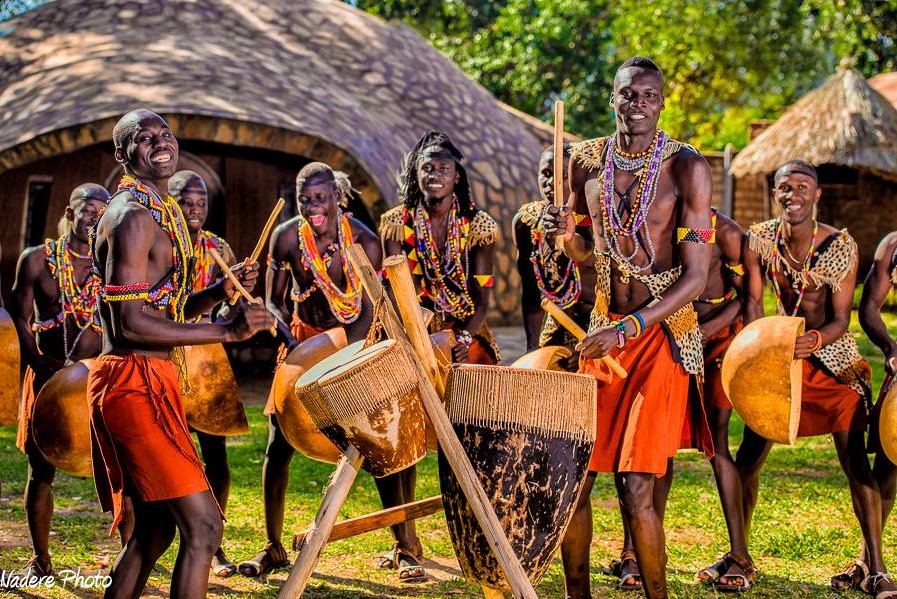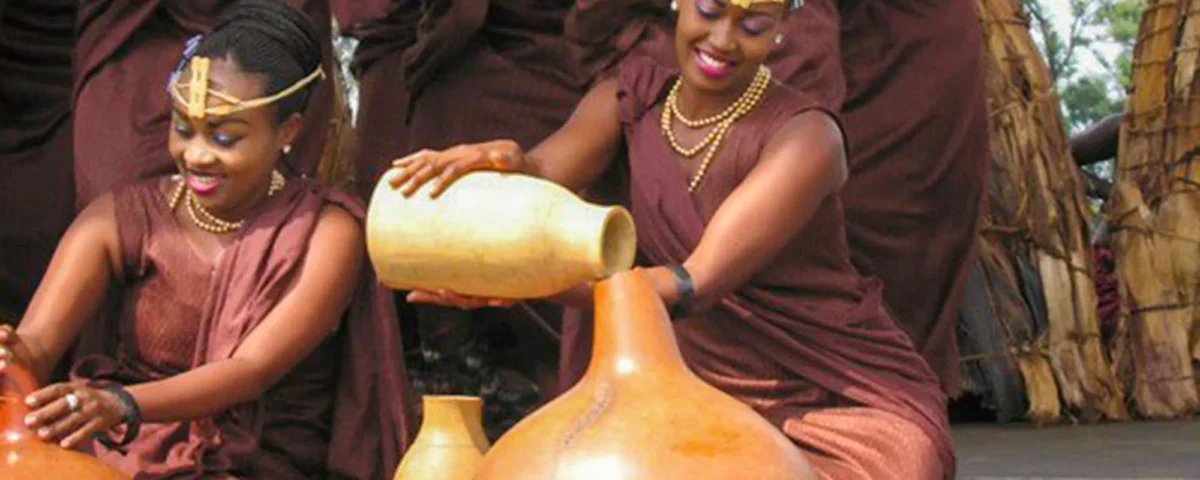
Nightlife in Kigali: The City That Shines After Dark
April 30, 2025
Gorilla Trekking in Rwanda vs Uganda
May 5, 2025A Taste of Culture: Cultural Centers, Cooking Classes, and Dance Lessons
When we travel, we often seek more than just beautiful landscapes and wildlife. We yearn to understand the people, their history, their daily life, and most importantly, their culture. Africa, with its diverse communities and deeply rooted traditions, offers travelers a rich tapestry of experiences that go far beyond sightseeing. In this article, Traford Safaris Ltd invites you to dive into authentic cultural encounters that awaken your senses and stir your soul—through cultural centers, hands-on cooking classes, and spirited dance lessons.
Whether you’re exploring the bustling city streets or venturing into rural villages, you’ll find that the rhythm of local life reveals itself most vividly through its traditions. Let us guide you through the vibrant cultural experiences that East Africa has to offer.
Cultural Centers: The Heartbeat of Local Heritage
Cultural centers are essential places for preserving and celebrating traditional ways of life. They offer an excellent introduction to the customs, languages, music, rituals, and stories of local communities. In countries like Kenya, Uganda, Rwanda, and Tanzania, these centers provide immersive experiences that allow visitors to appreciate the continent’s cultural depth.
In Nairobi, for instance, the Bomas of Kenya brings together diverse ethnic groups under one roof. Visitors can watch live performances of traditional dances, explore replicas of tribal homesteads, and learn about the customs and attire of more than 40 Kenyan tribes. Similarly, Uganda’s Ndere Cultural Centre in Kampala is a lively space where storytelling, drumming, and theatrical dance come alive, capturing the essence of the country’s rich tribal traditions.

Ndere Cultural Center
Rwanda’s Iby’Iwacu Cultural Village near Volcanoes National Park offers a unique opportunity to witness traditional medicine practices, banana beer making, and community-based dances performed by local Intore dancers. The aim is not only to entertain but also to empower local communities through sustainable tourism.
These cultural centers serve as both educational institutions and entertainment venues. They preserve indigenous knowledge systems while giving travelers a chance to engage meaningfully with local people. By visiting them, you not only learn about culture—you become part of it, even if for just a day.
Cooking Classes: Discovering Culture Through Cuisine
Food is the language of every culture. It’s a delicious gateway to understanding a people’s way of life, traditions, and environment. Participating in cooking classes while on safari or cultural tours can be one of the most rewarding experiences for any traveler.

Traditional Tanzanian Cooking Class
East African cuisine is a rich blend of indigenous ingredients, colonial influences, and centuries-old trade routes. From spicy Swahili coastal dishes in Mombasa to hearty matoke and luwombo in Uganda, the culinary diversity is astounding. Cooking classes allow visitors to go beyond the plate and understand the history and values embedded in every bite.
Imagine spending a morning at a Rwandan homestead, plucking fresh vegetables from the garden, and learning how to prepare Isombe—a dish made from cassava leaves, groundnut paste, and spices. In Kenya, you might knead dough to make chapati while a local host explains its Indian influence and how it has become a staple in daily meals.
Cooking sessions are often led by women in the community, who not only teach techniques but also share stories passed down through generations. These intimate interactions create genuine human connections. You’re not just following a recipe—you’re learning about family traditions, seasonal rituals, and social customs around food.
By the end of the experience, you don’t just walk away with a full belly—you carry a piece of culture with you. Often, you’ll receive handwritten recipes or spice packages to recreate the dish at home. In many ways, these cooking classes are a delicious reminder of the kindness and hospitality that define African cultures.
Traditional Dance Lessons: Move to the Beat of the Continent
African dance is not just about performance—it is a deeply spiritual and social practice that binds communities together. Every region, tribe, and occasion has its own rhythm, steps, and significance. Participating in a traditional dance lesson is one of the most exciting ways to connect with local culture on a personal level.
In Uganda, the Bakisimba dance of the Baganda people is an expression of joy, usually performed during royal ceremonies and social events. The movements are rhythmic and grounded, mimicking natural elements like flowing water or footsteps in fertile soil. Travelers often find themselves drawn to these movements not just for their energy but for the stories they tell.
In Tanzania, the Sukuma people’s traditional dances often involve drumming, acrobatics, and community participation. The learning process itself is interactive—you may begin by simply clapping to the beat, gradually picking up the footwork and body gestures.

Dancing classes
Meanwhile, in Rwanda, Intore dancers wear grass wigs and ceremonial attire while performing choreographed routines that blend warrior spirit and celebratory expression. Participating in a class with them allows travelers to feel the pride and resilience woven into the country’s heritage.
Dance lessons are often organized as part of cultural tours or at community centers. You don’t need to be an expert dancer to join—just bring your curiosity and willingness to have fun. The smiles, laughter, and sense of unity that come from these sessions make them unforgettable highlights of any cultural safari.
Why Culture Matters in Safari Travel
At Traford Safaris Ltd, we believe that no journey is truly complete without a connection to the local culture. Wildlife sightings and scenic drives create awe, but cultural experiences ignite empathy and understanding. By engaging with people, learning from their traditions, and respecting their heritage, travelers become part of a meaningful exchange.
Cultural activities add layers to your safari experience. Imagine going on a morning game drive in Maasai Mara and returning in the afternoon to visit a Maasai village. As elders explain their way of life and warriors perform ceremonial dances, your appreciation of the land deepens. You begin to see the wilderness not just as a beautiful backdrop, but as an ancestral home filled with stories and spirit.
Moreover, cultural tourism contributes to local economies. It supports artisans, storytellers, dancers, and home cooks who might otherwise be excluded from mainstream tourism. It empowers women, preserves languages, and nurtures pride in identity. Every dollar you spend in a cultural setting has a ripple effect—it helps communities thrive.
Combine Culture with Adventure: Tailored Experiences by Traford Safaris Ltd
We specialize in designing personalized itineraries that blend culture and adventure seamlessly. Whether you’re interested in a day of music and dance, a culinary tour through local markets, or a multi-day immersion in a rural village, we can craft an experience to match your curiosity and comfort level.
Want to learn the secrets of traditional herbal medicine from a healer in western Uganda? Or perhaps attend a drumming workshop in Zanzibar? We collaborate closely with local communities to ensure that every cultural encounter is respectful, genuine, and enriching for both guest and host.
Our guests often tell us that while wildlife safaris are thrilling, it’s the cultural moments they remember most—sharing a meal, dancing under the stars, or listening to a grandmother’s story by the fire. These are the memories that stay with you long after the photos fade.
Practical Tips for Cultural Experiences in East Africa
To get the most out of your cultural journey, keep the following tips in mind:
-
Be respectful and open-minded: Cultures are different, not better or worse. Approach every experience with humility.
-
Ask permission before taking photos: Especially in rural or sacred spaces.
-
Dress modestly: Many communities have cultural norms around dress, particularly in religious or traditional settings.
-
Bring small gifts or purchase handmade crafts: It’s a thoughtful way to support local artisans and show appreciation.
-
Learn a few local words: A simple “thank you” or greeting in Swahili or Kinyarwanda can go a long way.
Conclusion: A Journey That Touches the Soul
Cultural experiences are not extras—they are the essence of meaningful travel. At Traford Safaris Ltd, we invite you to move beyond observation and into participation. Let the songs, stories, spices, and dances of East Africa draw you into a world that’s vibrant, welcoming, and full of life.
Whether you’re kneading dough with a grandmother in Uganda, learning tribal drumming in Tanzania, or spinning joyfully in a Rwandan dance circle, these are not just travel moments—they are life moments. Moments of learning, of laughter, of connection. And they’re waiting for you.
Book your cultural safari today with Traford Safaris Ltd and take home more than memories—take home a piece of Africa’s heart.




